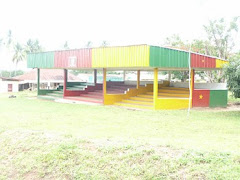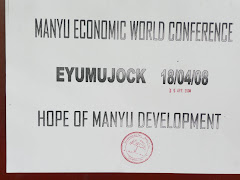
In Cameroon today, the computer revolution has affected almost everyone's life. Computers are utilized for business communications, shopping, postal service, banking and much more. Being computer literate is a useful skill in today's society. However, to become familiar with computers, one must first have access to them. Generally these skills can be learned at school, but a problem arises in the fact that there is not equal access to computers in most of our schools. There continue to be a large gap between the computer "haves" and "have nots," especially among our primary and secondary schools and worst off, schools in rural areas where there is lack of electricity.
According to the U.S. National Center for Education Statistics, computer literacy may be defined as "whatever a person needs to know and do with computers in order to function competently in our information-based society". Competency is therefore broken down into three categories: skills to use computers in learning and information management; knowledge of the capabilities, functions and social implications of computers; and understanding to learn and evaluate new applications and social issues of computers. These three areas encompass virtually every aspect of literacy in terms of computers.
Our information based society is fast becoming more dependent upon computers as resources. To function in many situations, familiarity with computer systems is necessary and therefore kids must acquire the required skills at an early age. In a minimal case, all stakeholders including the private industry, local and national government should be investing in computer literacy for the future generation by equipping schools with the right hardware and software.
 Computers in education can be the foundation for students to learn technology based skills which are desirable for and often demanded in today's job markets. Generally, being accustomed to utilizing systems or being computer literate at an early age can aid not only in developing motor skills but being competitive on the global stage. Working together with the private sector, parents and government officials must therefore seize the opportunity and make sure young minds are not wasted at an early age. On a larger scale, our governments and development advocates have a responsibility to ensure diffusion of computer technology in our schools does not remain a national policy and lofty goal in paper but in practice.
Computers in education can be the foundation for students to learn technology based skills which are desirable for and often demanded in today's job markets. Generally, being accustomed to utilizing systems or being computer literate at an early age can aid not only in developing motor skills but being competitive on the global stage. Working together with the private sector, parents and government officials must therefore seize the opportunity and make sure young minds are not wasted at an early age. On a larger scale, our governments and development advocates have a responsibility to ensure diffusion of computer technology in our schools does not remain a national policy and lofty goal in paper but in practice.



























No comments:
Post a Comment